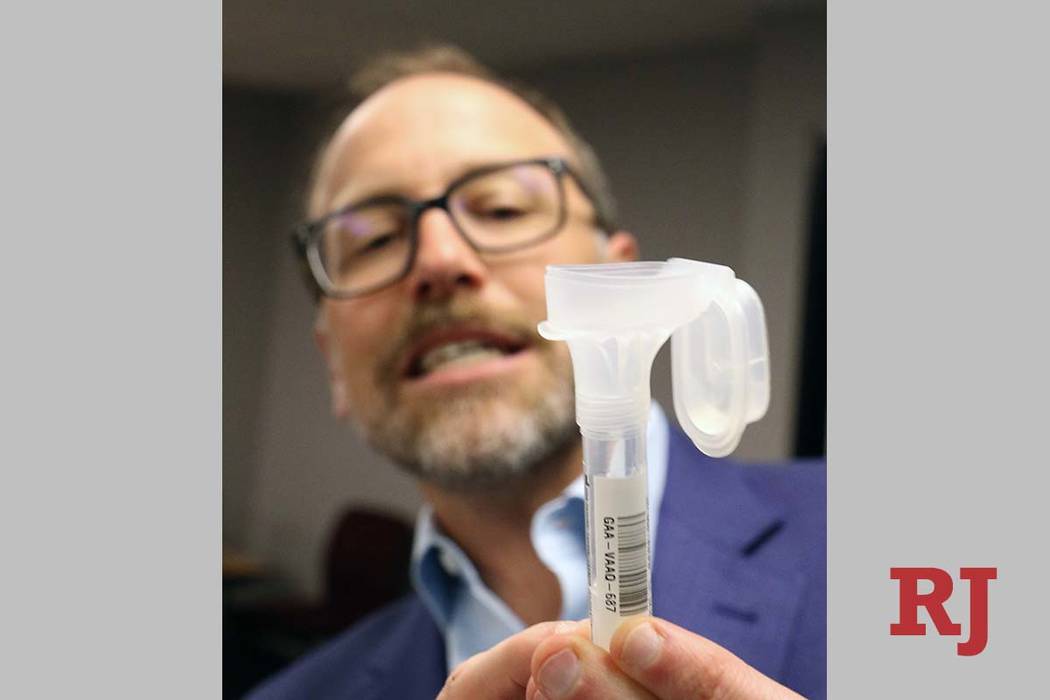Free test to learn ancestry helps launch Healthy Nevada Project

A mouthful of saliva is all it will cost Southern Nevadans to learn about their ancestry and their risk for developing deadly diseases.
The Healthy Nevada Project is launching in Clark County on Tuesday, bringing free genetic testing to as many as 25,000 adults who sign up for the study’s first wave at HealthyNV.org.
The study will be conducted at three UMC Quick Care locations in the county. Participating can take less than 30 minutes.
“You literally just spit in a tube,” said Dr. Joseph Grzymski, principal investigator for the study. “It’s a really painless test.”
The study is a collaboration of the Desert Research Institute, the Reno-based Renown Health network and the Helix genetics testing company.
Billing itself as “the largest community-based population health study in the world,” the research project already has enrolled more than 35,000 volunteers since it was launched in Washoe County in late 2016.
The study’s goal is to use the samples to gauge the role genes play in Nevada’s position near the bottom of national health care rankings. The genetic data will be studied alongside other factors such as socioeconomic status, behavior and access to health care.
“To understand population health you really need a mixture of the population to study, instead of just a few people in a room talking about how they live,” Grzymski said.
Participants must be at least 18 years old to enroll. They won’t be paid but can reap benefits.
One to two months after testing, participants will receive a free report tracing their ancestry from the National Geographic Society. They’ll also be alerted if they have a hereditary risk for heart disease or breast, ovarian or colon cancer.
“We’ll know what people are at risk for 10 years before the condition develops,” said Dr. Anthony Slonim, president and CEO of Renown Health. “If we find someone with a problem (they) can take that result right to their doctor.”
If the study grows large enough, researchers will be able to pinpoint communities in Nevada that should receive screening for specific diseases, Slonim said.
Privacy is a paramount concern for the researchers conducting the study, Grzymski said. The Desert Research Institute, the nonprofit research arm of the Nevada System of Higher Education, is responsible for housing the data.
It will be up to the study’s participants to decide whether to share their genetic findings with their doctors, and they can opt out of receiving the results entirely.
“We take privacy really, really seriously,” said Grzymski, who is Renown’s chief scientific officer and an associate research professor at the DRI. “I wouldn’t have joined the study, and I wouldn’t be the principal investigator if I didn’t feel really good about the many measures we take to ensure that privacy.”
Contact Michael Scott Davidson at sdavidson@reviewjournal.com or 702-477-3861. Follow @davidsonlvrj on Twitter.